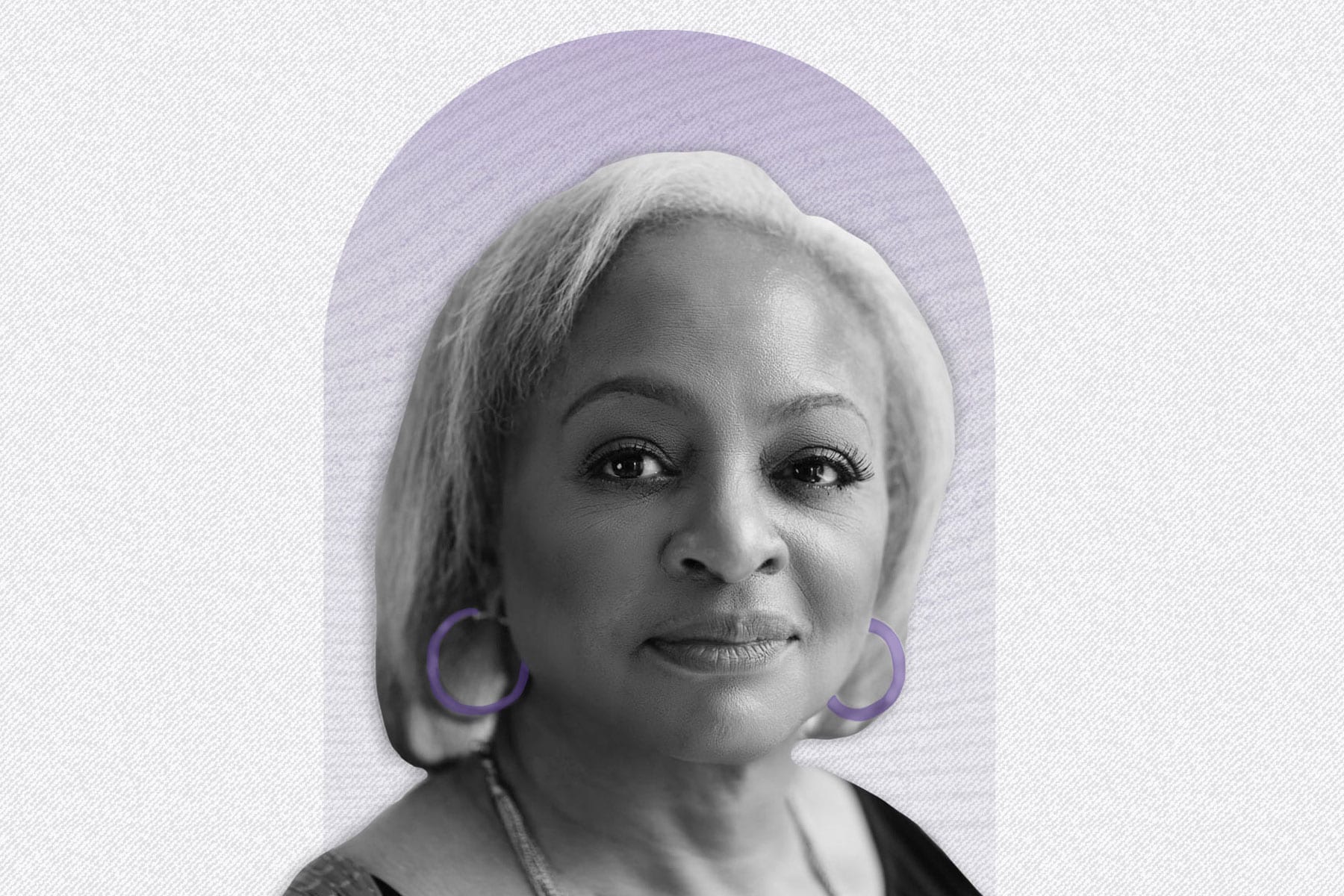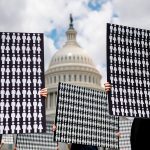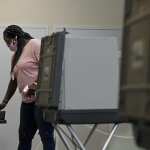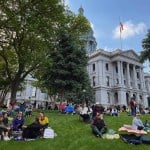During an interview with Carol Anderson around the 2018 midterm elections and voting rights, she mentioned that she was already working on her next book, and the topic grabbed my attention: the relationship between Black Americans and the Second Amendment.
In my career, I have spent a lot of time thinking about the intersection of race and society. And like Professor Anderson, the killing of Black Americans at the hands of law enforcement — including lawful gun owners like Philando Castile — had me asking many of the same questions she raises in “The Second: Race and Guns in a Fatally Unequal America.”
Below is our conversation about the roots of this inequity and Anderson’s thoughts on where the issue stands today, particularly in the wake of events like the January 6 insurrection.
This interview has been edited for length and clarity.
Errin Haines: What inspired you to write a book about African Americans and the Second Amendment?
Carol Anderson: I got the idea for this book after the murder of Philando Castile, seeing how he followed NRA guidelines when pulled over by the cops, and he got shot dead. And the NRA goes virtually silent. They’re basically silent when a Black man is shot for no other reason than owning a licensed gun? That’s what got me on this hunt.
The Castile shooting happened right after the Fourth of July holiday, when America celebrates our country’s freedoms and founding principles like the Second Amendment. And yet, the shootings of unarmed Black Americans feel like a reminder that those freedoms still don’t fully extend to them.
My work is really attracted to understanding the fractured citizenship of Black people in the United States. And this was an area that I had not covered previously. And Philando Castile’s murder, the NRA’s virtual silence and the questions asked by journalists really helped me go and explore what is called a basic foundational citizenship right. And to find that the Second Amendment is about how to deny Black people their rights.
There are many amendments to the Constitution where you see inequality existing. But you assert that the inequality that exists as it pertains to the Second Amendment is actually dangerous for Black people. Talk to me about why it matters more that the Second Amendment does not apply equally for Black Americans.
Whereas the other amendments are predicated on the access to rights — you have the right not to be illegally searched and seized; you have the right to a speedy and fair trial; you have the right to a jury trial in a civil suit; you have the right to freedom of religion; you have the right to freedom of association — what we get in the Second Amendment is not this expansion of rights, but we get an amendment that is about a militia that is designed to curtail Black people’s rights to life, liberty and the pursuit of happiness.
So sitting in the Bill of Rights is the right to curtail Black people’s rights. That’s what makes it so pernicious. To me, part of what has happened is that we have crafted a historical narrative that has made the Second Amendment hallowed ground, and that has treated the militia as defenders of democracy.
The messaging around the Second Amendment has not only been about Black subjugation, but it is also perpetuating the myth of the White hero in this country and the idea of who gets to be a patriot, who gets to be a citizen. And core to that criteria is one’s ability and right to bear arms, right?
After the Civil War … that only White folks were willing to take up arms and fight for this nation. And it ignores that you had Black folks willingly demanding to be able to fight. The narrative becomes that only Whites fought for this nation. It makes Whites the hero in the building and the founding and of the fighting for this nation. In the first Congress, one of the first bills that they draft says White men — it doesn’t say all able-bodied men — must join the militia, and they must own a gun. So, making it foundational to citizenship, to being part of this militia.
So then the effect is that the Second Amendment reinforces the idea that citizenship and Americanness is the purview of White men in this country.
Yes. And part of what I’m also really going after here is that it is anti-blackness, it is the fear of Black people, the crafting of blackness as a threat, as danger, as a source to be feared. And so with this book, I’m tracking not only the origins of the Second Amendment, but then how the ways that we even understand it, how they apply and don’t apply to Black folk: The right to self defense, the right to a well regulated militia, and the right to bear arms. What does that look like over time?
What I found is that regardless of the legal status of Black folk — enslaved, free black, denizen, newly emancipated freed people, Jim Crow Black, or post civil rights Black — it’s the same kind of fractured citizenship, where blackness is the threat. It doesn’t matter whether Black folks are armed, they’re a threat. If they’re unarmed, they’re vulnerable, and they’re still a threat.
I want to stick with this self-defense piece. You talk about “stand your ground” laws in the book and say these laws are like “quicksand” for Black folks. Can you elaborate on what you mean, on how you see a racial element to why that is unacceptable for some people.
The “stand your ground” law deals with perceived threat, if you perceive that you are threatened, if you’re someplace where you have a right to be. When you think about Black as the default threat, then that perception of threat … The message that that sends to Black Americans is that you don’t you don’t have the right to stand your ground. If you are threatened by Whites, stand your ground is not an option really available to you. You have no standing.
Circling back to the militia aspect of this, I’m wondering about your thoughts on present-day militias like the insurrectionists that stormed the U.S. Capitol on January 6?
I think about how you had those armed White men sitting in the Michigan legislature, and how they stormed that Capitol, demanding to see the governor. The response was not to put pressure on them, not to kick them out, not to shoot them. The response was, ‘They’ve got a point of view that they need to get across.’
And that’s what I mean by the way that we have elevated the Second Amendment to hallowed ground, and therefore elevated the militia to this sanctified space without really recognizing that, at the time, the role of the militia was to control Black people, was to stop Black people from having the right to freedom.
What I see is a nation so steeped in anti-blackness … When I talk about the conundrum of the Second, it is that when Black folk are armed, they’re a threat. And you get massive state firepower being waged against them. When Black folks are unarmed, there’s still a threat. They’re just vulnerable to the violence that will rain down on them. It is anti-blackness in American society that is the issue.
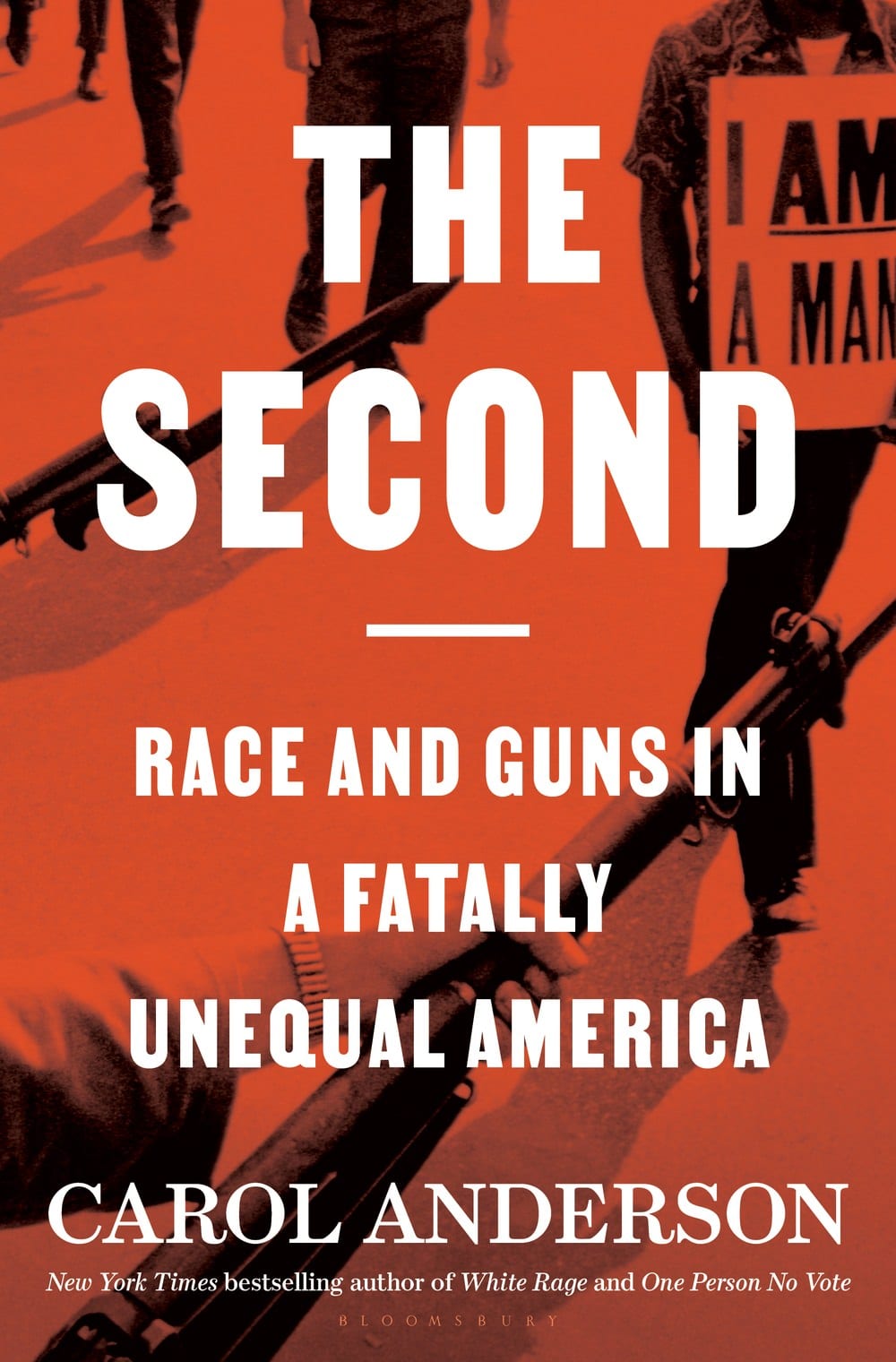
Blackness is the weapon. It’s not the gun. How many unarmed Black folks have you seen gunned down?
I want to talk about the right to bear arms. I wonder what you make of the idea that you are increasingly seeing lawful gun ownership among African Americans as part of them claiming their citizenship, and specifically them claiming their right to bear arms under the Second Amendment as Americans?
Why as a country, are we not talking more about the Second Amendment as part of the larger conversation around Black Lives Matter?
That is a great question. I think that the issue of gun rights and gun ownership gets tied into that narrative of pathology of “Black on Black crime.” What we don’t say is that yes, over 80% of African Americans are killed by African Americans, but over 80% of Whites are killed by Whites. But we don’t talk about “White on White crime.” The narrative of “Black on Black crime” is what short-circuits a full engagement with the role of the Second Amendment in Black Lives Matter?
If Black Lives Matter, do Black people have a right to defend themselves? Do Black people have a right to bear arms in this country? And do Black people have a right not to be killed? And to not have their blackness seen as a weapon?
It is this box that Black folks are in: What is the acceptable way to be Black? What is the acceptable way to protest? And how are you allowed to demonstrate your citizenship?
It’s that kind of disparity that is why I also ended the book with the Kyle Rittenhouse story. I juxtapose that to Tamir Rice, where you’ve got this 12-year-old child playing alone in a park with a toy gun and is immediately identified as a threat by police and they shoot him within two seconds and he died. Kyle Rittenhouse is a 17-year-old who has an illegal weapon, crosses state lines with this illegal weapon, and the police welcome him during a protest. And Rittenhouse then guns down three people, killing two of them and severely injuring a third. As he walks towards the cops with his hands up, strapped with his rifle, the cops don’t even pay him any attention. They don’t see threat, right?
Can I ask about the Second Amendment as it applies to the intersection of race and gender? Is it even more perilous when we’re talking about the Second Amendment and Black women?
I think about Breonna Taylor. Black women are threats. Their blackness makes them a threat. And then they’re not provided any of the protection that being a woman provides. We’ve got to protect ourselves.
